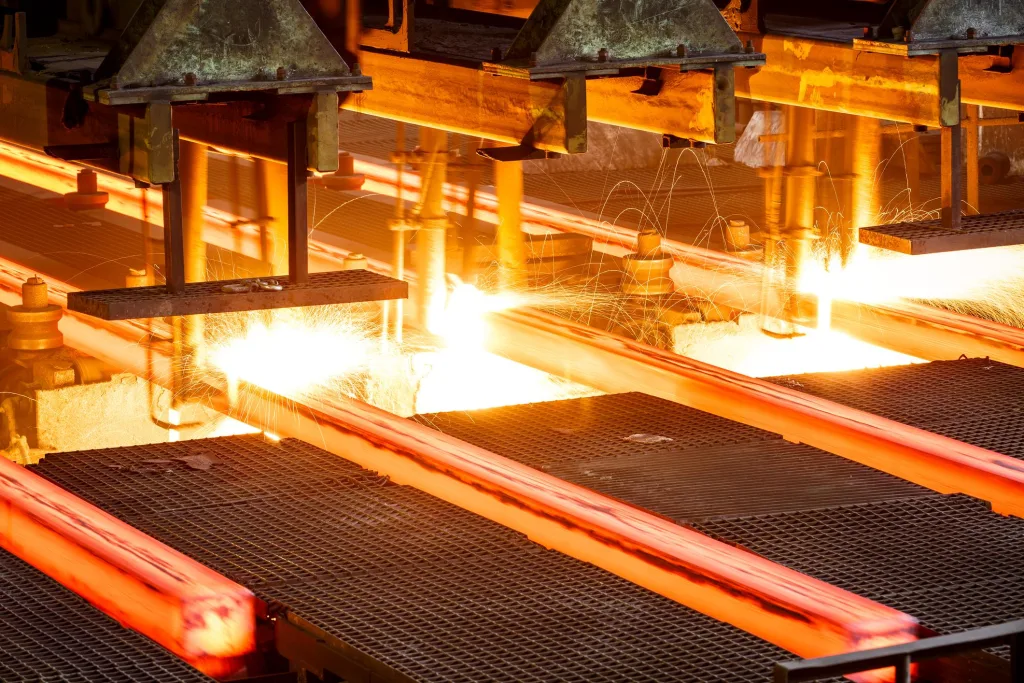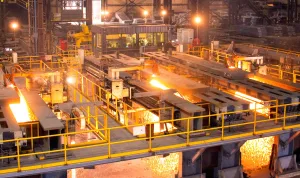How Changes in Commodity Prices Impact Nucor Corporation: An In-Depth Analysis

Commodity prices are a critical factor influencing the steel industry, and for Nucor Corporation, these fluctuations can have significant effects on its business operations and financial performance. As a leading steel producer, Nucor’s profitability and strategic decisions are closely tied to changes in the prices of key commodities. This article explores how variations in commodity prices impact Nucor Corporation, including the effects on production costs, pricing strategies, and overall business performance.
1. Impact of Raw Material Prices
Steelmaking Raw Materials
Nucor’s steel production relies on key raw materials such as iron ore, scrap metal, and metallurgical coal. Changes in the prices of these raw materials directly affect production costs. For instance, a rise in iron ore prices can increase the cost of steel production, impacting Nucor’s profit margins. Conversely, a decrease in raw material prices can reduce production costs and improve profitability.
Scrap Metal Pricing
As a significant user of scrap metal in its electric arc furnaces, fluctuations in scrap metal prices can have a considerable impact on Nucor’s costs. Scrap metal prices can be volatile, influenced by factors such as market demand, recycling rates, and global trade policies. Nucor’s ability to manage these fluctuations is crucial for maintaining cost efficiency and competitive pricing.
2. Energy Costs and Production Efficiency
Energy Prices
Energy costs, including electricity and natural gas, are integral to steel production. Changes in energy prices can affect Nucor’s operational costs, as energy is a significant expense in the steelmaking process. Rising energy costs can lead to increased production expenses, while lower energy prices can reduce operational costs and enhance profitability.
Operational Adjustments
To mitigate the impact of fluctuating energy prices, Nucor may invest in energy-efficient technologies and optimize production processes. By improving energy efficiency, Nucor can reduce its exposure to volatile energy costs and maintain cost control in its operations.
3. Pricing Strategies and Market Position
Product Pricing
Commodity price fluctuations can influence Nucor’s pricing strategies. When raw material costs rise, Nucor may adjust its product prices to maintain profit margins. Conversely, if commodity prices decline, Nucor has the opportunity to offer more competitive pricing, potentially gaining market share.
Market Demand and Competitiveness
Changes in commodity prices can also affect market demand and competitiveness. High commodity prices may lead to reduced demand for steel products, as construction and manufacturing industries may seek to cut costs. Nucor’s ability to adapt its pricing and product offerings in response to market conditions is essential for maintaining a competitive edge.
4. Supply Chain and Procurement
Raw Material Sourcing
Fluctuations in commodity prices impact Nucor’s procurement strategies. The company must navigate changes in raw material costs by securing supply contracts and diversifying sources of materials. Effective supply chain management helps Nucor mitigate the impact of price volatility and ensure a stable supply of essential inputs.
Inventory Management
Nucor’s approach to inventory management is influenced by commodity price trends. The company may adjust its inventory levels based on anticipated price changes, balancing the need to manage costs with the requirement to meet customer demand.
5. Financial Performance and Risk Management
Profitability and Margins
Commodity price changes can directly impact Nucor’s profitability and financial margins. The company’s ability to manage cost fluctuations and adjust pricing strategies is crucial for sustaining financial performance. Nucor’s financial risk management practices, including hedging strategies and cost control measures, play a key role in mitigating the impact of commodity price volatility.
Long-Term Planning and Investment
Long-term changes in commodity prices can influence Nucor’s investment decisions and strategic planning. By forecasting price trends and assessing potential impacts on its business, Nucor can make informed decisions regarding capital investments, expansion projects, and operational adjustments.
Conclusion
Commodity prices have a significant impact on Nucor Corporation, affecting production costs, pricing strategies, and overall business performance. By understanding the effects of fluctuations in raw material and energy prices, Nucor can effectively manage its operations and maintain profitability. Strategic responses, including cost management, pricing adjustments, and supply chain optimization, are essential for navigating the challenges posed by commodity price volatility.



